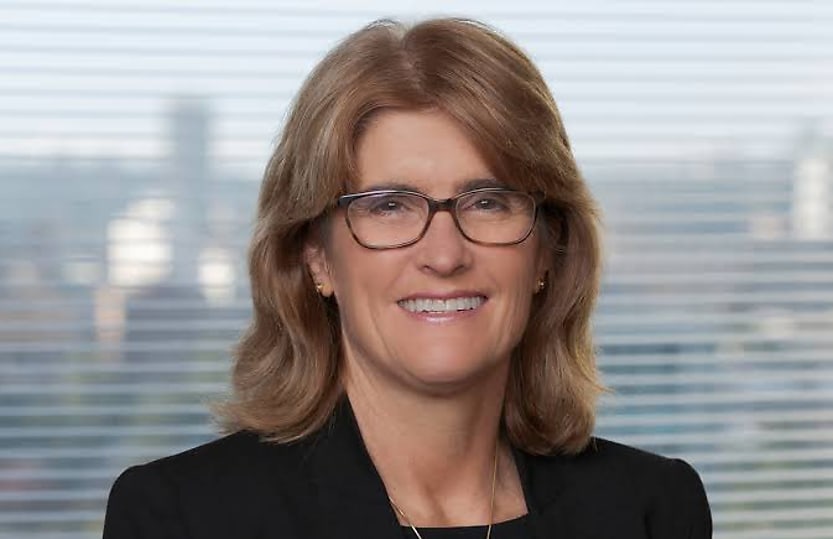RBA tipped to maintain same policy path after new governor

The outlook for interest rates is expected to remain broadly the same when Michele Bullock takes over the role of governor in September, according to economists.
The government announced last week that deputy governor Michele Bullock would be the new governor of the Reserve Bank of Australia from September when Governor Philip Lowe’s term ends.
Barclays Economics Research said it expects to see “policy continuity” after Ms Bullock takes over in September given that she has been the deputy chair of the board of the RBA, which is responsible for setting monetary policy.
“In her most recent speech titled ‘Achieving Full Employment’, Bullock repeated what Governor Lowe has been stating for some time that getting inflation to target “in a reasonable timeframe – while preserving as many of the employment gains” as possible would be a better outcome,” the Barclays Economics Research team said.
“She also mentioned that price stability is a prerequisite for a strong economy and full employment, highlighting that full employment could be achieved if the economy grows at a below trend pace for a while.
“Governor Lowe mentioned at his speech on 12 July that “it remains to be determined whether monetary policy has more work to do” and whether or not more hiked are needed would depend on how the economy and inflation evolve.”
These recent comments from the board suggest that the RBA is now towards the end of the hiking cycle, according to Barclays.
“While we continue to see one final hike in August, a faster deterioration in the outlook for growth from here, in our view, could well make the bank hold off from hiking or take a longer pause to assess data further.
This would be in line with our expectation that the bank will be data dependent after having hiked by 4 per cent over this cycle.
AMP chief economist Shane Oliver said the appointment of Ms Bullock was an excellent choice given her experience at the RBA and her monetary policy credibility.
“Because she is well known and highly experienced in communicating RBA views it means less risk of the initial uncertainty that can come with new central bank governors and hence less need for her to prove herself by, for example, coming out even more hawkish on interest rates,” said Dr Oliver.
“Michelle Bullock has been on the Board since April last year and has presumably agreed with the rate hikes and her public comments have been consistent with Governor Lowe’s strategy.”
Dr Oliver agreed that the change in governor was unlikely to result in significant change in the outlook for interest rates.
“The good news is that all the heavy lifting on interest rates has already been done and with inflation falling globally and in Australia we are likely at or close to the top on interest rates,” he stated.
“In fact, the new Governor’s first big decision will likely be to cut interest rates starting next year, although she will have to deal with the fallout from the rate hikes including the high risk of recession.”
Governor Lowe “softening the RBA’s tightening bias”
Governor Lowe’s softer language around policy suggests that interest rates may be at or close to the top, according to Dr Oliver.
“Given our own assessment that the RBA has already done enough, it’s hard to argue with his relaxation in the tightening bias, although I suspect the RBA will still do more given risks on wages and sticky services inflation and Governor Lowe may want to get any rate hikes out of the way before Michelle Bullock takes over in mid-September,” he said.
“Jobs data in the week ahead, inflation data at the end of the month and revised RBA wages growth forecasts will likely be key.”
Impact of the RBA review
The shift to fewer meetings and more communications in line with the RBA review recommendations is also not expected to impact interest rates significantly.
“None of the moves are likely to result in a significant change to the profile over time for interest rates as the RBA’s 2–3 per cent inflation objective is unchanged. The move to less meetings though could lead to more considered decisions but may come with bigger moves at times either up or down as we have seen in other countries with less meetings,” said Dr Oliver.
“The press conferences are unlikely to add much as the RBA already communicates a lot.
Dr Oliver said that requiring the board to sign off on moves could potentially “dilute the accountability of the RBA and may make it hard in times of uncertainty for the RBA governor to lead the current Board and even more so the proposed Monetary Policy Board on decisive decisions and guidance”.
About the author
